Ikea warns stock shortages to last into next year
- Published
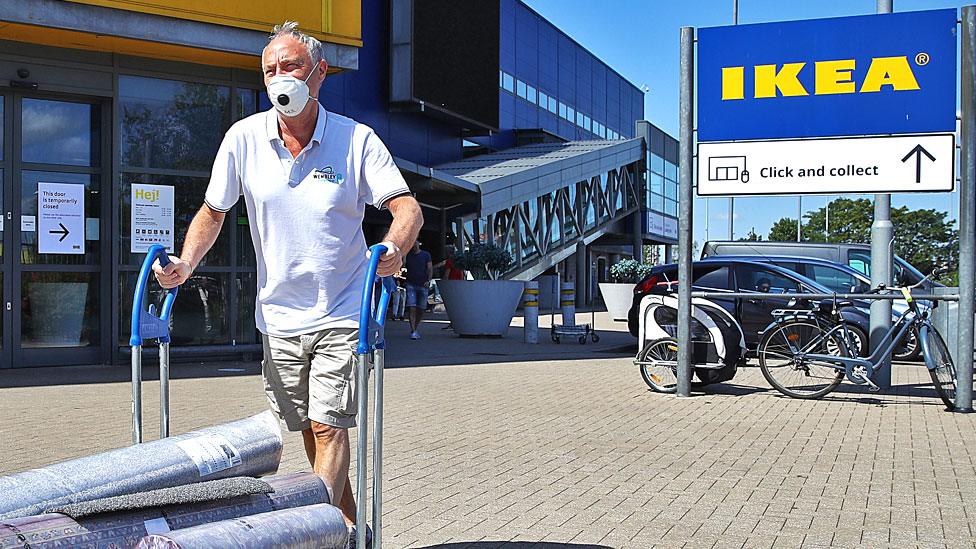
Ikea, the Swedish furniture giant, says it expects the disruption to global supply chains to continue for at least another year.
Chief executive Jesper Brodin said while there had been some improvement, there was still congestion at ports which has led to supply problems.
"We need to live with disturbances for the year to come," he said.
The owner of Poundland has also predicted that pressure from supply chain problems will last into 2022.
Andy Bond, chief executive of PepCo, which owns Poundland, said that its shipping costs had soared. "There are some times where we have had to pay 10 times our normal rates," he said.
"That's not to say every day but that has been the impact."
Mr Bond said the retailer had good levels of stock for Christmas and did not expect to increase prices to cope with rising shipping costs. But he said: "I think that we see the next 12 months remaining challenging."
'No easy fix'
Mr Brodin, chief executive of Ingka, which operates the majority of Ikea's stores, told the BBC that the UK and other countries were suffering with "congestion in ports and disturbances in supply chains".
"There is no easy fix to any of this even if people are working hard across not only Ikea but also across the world," he said.
Last month, Ikea said it was struggling to supply 10% of its stock, or around 1,000 product lines including mattresses, to its 22 stores in the UK and Ireland amid the continuing shortage of HGV drivers.
Meanwhile, earlier this week, it emerged that the key British commercial port of Felixstowe was suffering from logjams of shipping containers because of the busy Christmas period and a deficit of lorry drivers to shift them.
Ikea has been forced to purchase additional shipping containers and charter vessels to address product shortages.
A spokeswoman for Ikea told the BBC last month: "We have also sent goods by train from China to Europe and we have invested in temporary intermediate warehouses in China, Vietnam, India, Indonesia, and Thailand to support production."
Mr Brodin said: "One thing we have learned is it is difficult to predict. You need to be on it every day and find the best solutions.
"At the same time from a realistic point, we need to live with disturbances for the year to come but things will gradually get better, I'm sure."
Port delays
On Wednesday, shipping giant Maersk told the BBC it was re-routing some of its biggest ships away from the Port of Felixstowe, due to a logjam of shipping containers.
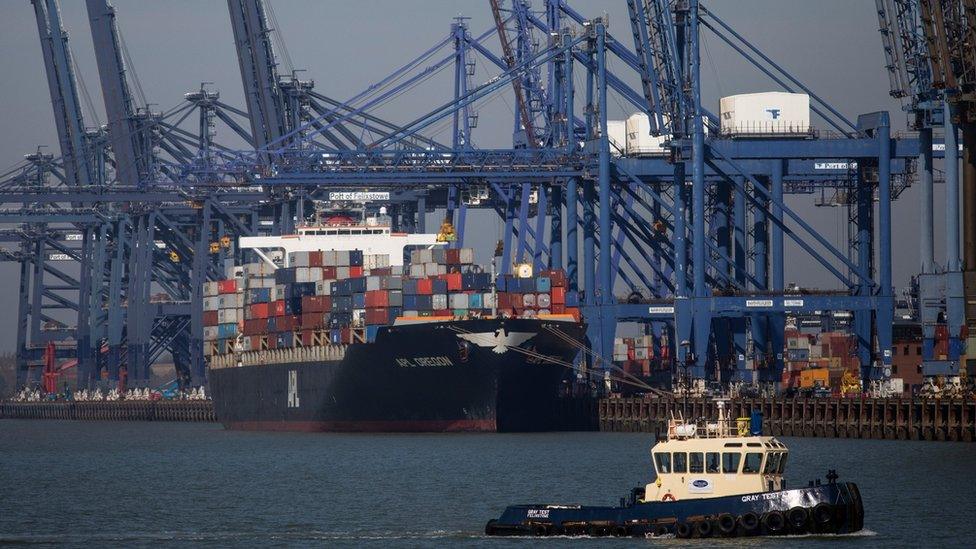
Felixstowe is the UK's busiest container port
Lars Mikael Jensen, head of global ocean network at Maersk, told BBC Radio 5 Live's Drive programme that some of its largest 20,000-container ships were waiting outside Felixstowe, the UK's biggest container port, for between four to seven days.
"We've taken those measures because we saw, because of the big ships, there is a limit to how many berths they can call in Felixstowe, and because its slower, it took longer to handle every ship," he said.
"Instead of wasting time waiting, we progressed to the next stop, and arranged that the boxes are relayed from that port rather than wait for a week and then discharge."
But on Thursday afternoon, the BBC understands that Maersk apologised to the government for the comments, which led to widespread concern about Felixstowe's capacity to receive and process goods.
The BBC has seen details of a conversation between the government and the shipping company.
It's understood that Maersk told the government that Lars Mikael Jensen, head of Maersk's east-west network, had said in a press briefing that Felixstowe was experiencing congestion.
Mr Jenson had mentioned that one ship was diverted to Rotterdam where the cargo was offloaded to a smaller ship.
Maersk said that there is not a specific plan to divert ships from Felixstowe now or in the near future and that traffic is managed dynamically. The company also said they are making decisions for other European ports.
Maersk is also understood to have said that they are bringing in 25% more boxes to the UK between July to September, than the same period last year.
Rising sales
Ikea revealed that, over the year to 31 August, sales rose by 6.3% to €37.4bn (£31.6bn).
Mr Brodin said that when the Covid pandemic first hit last year, the group was forced to speed up a plan to invest in a strategy to meet customer needs and take on "the new competition", in particular ramping up its online operation.
He said that what the company had planned as a two-year transformation was rolled out in two months.
Mr Brodin said dealing with the pandemic "is definitely a challenging time in so many ways".
He said the increase in annual sales was the one he was "most proud of" during his 25 years with the company.
"We have experienced the demand on life at home like never before in every market, since, of course, people have been in the same situation - confined to the four walls of their home."
Related topics
- Published14 October 2021
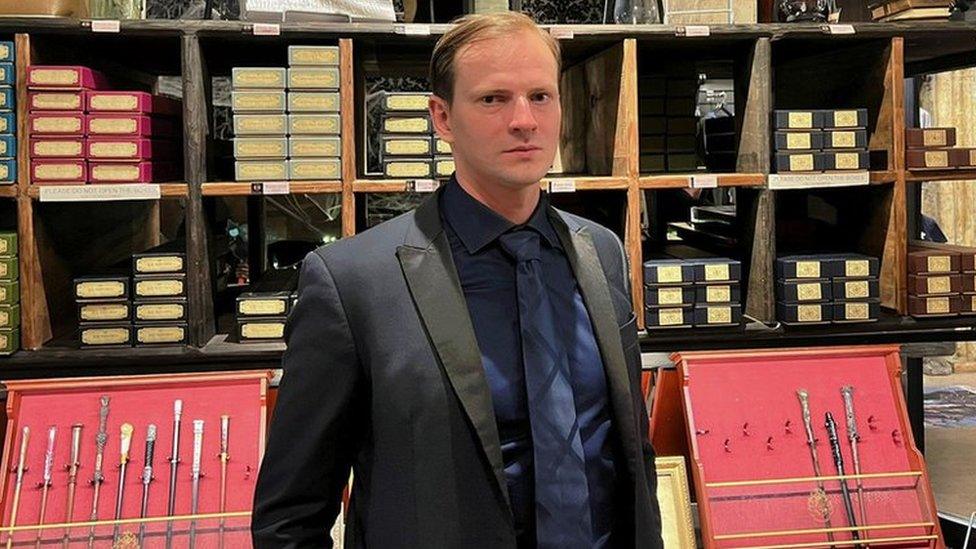
- Published14 October 2021
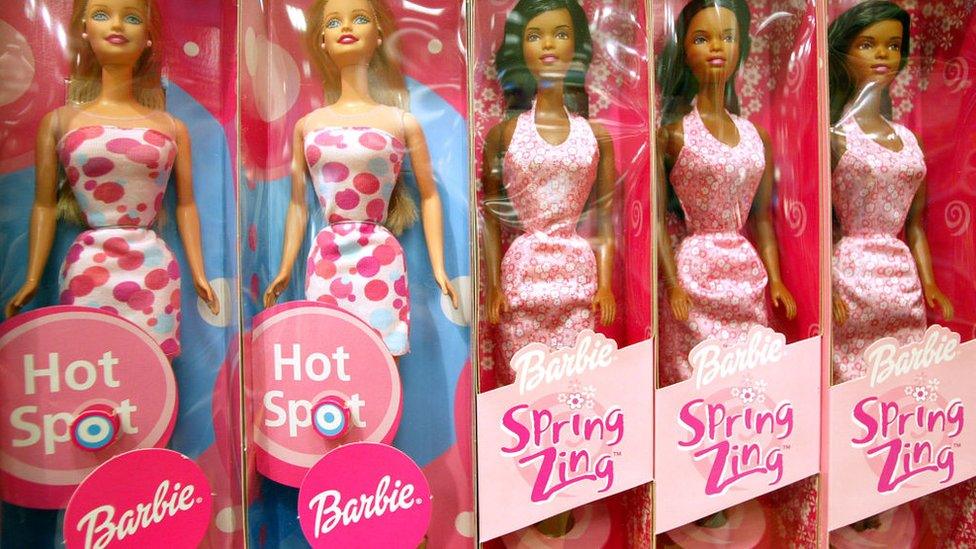
- Published14 September 2021
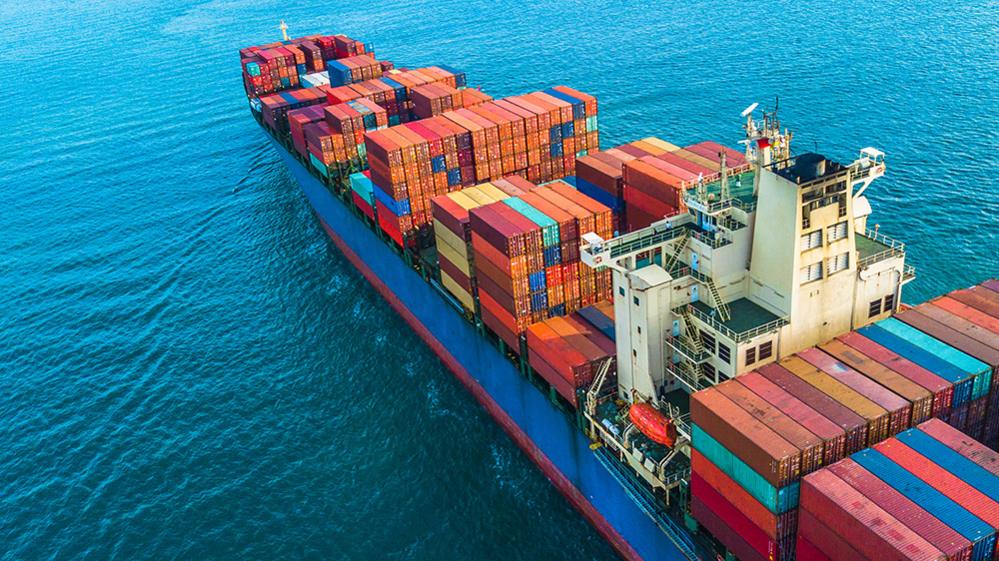
- Published5 September 2021
